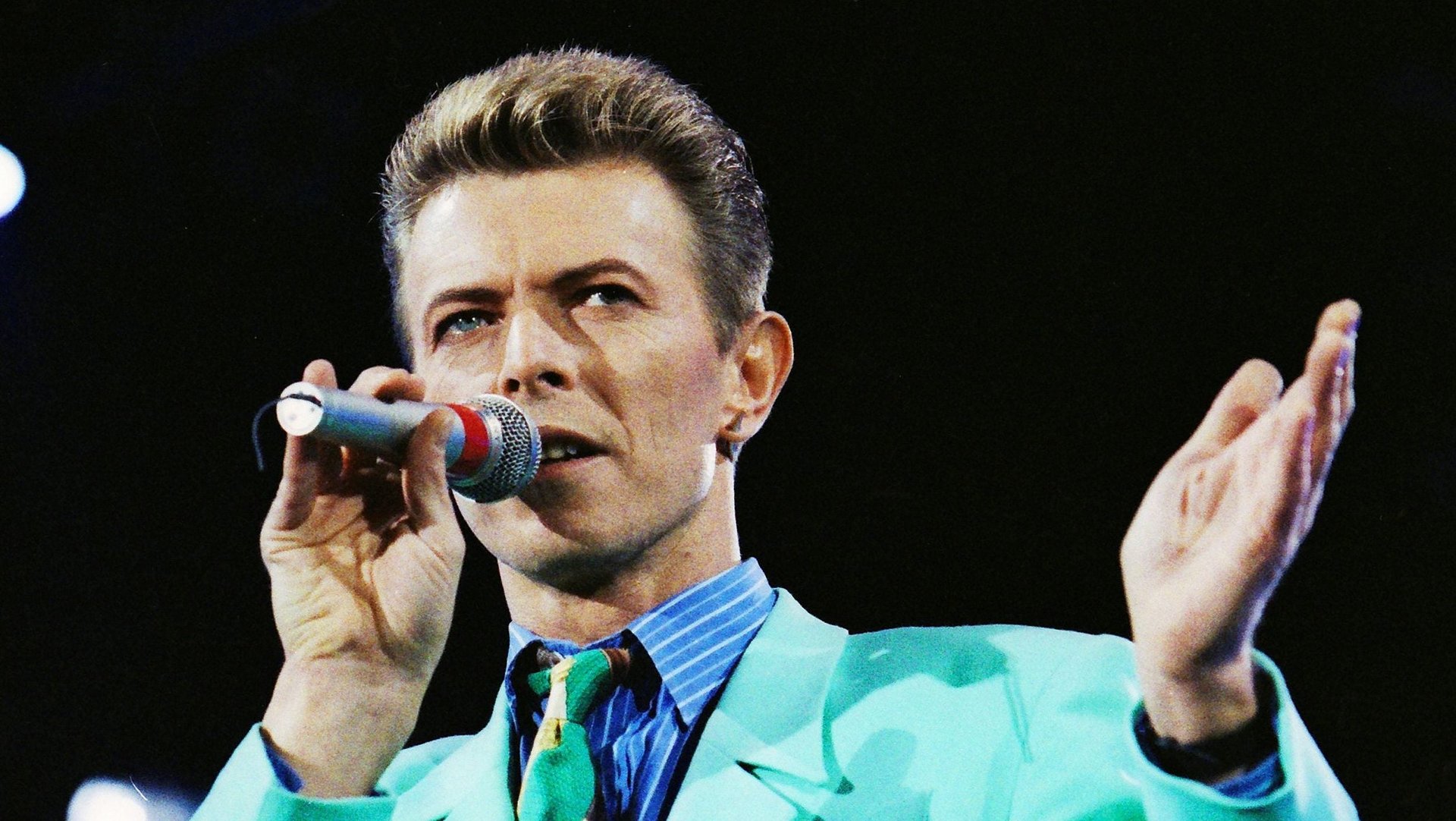David Bowie knew how to inspire creativity in his peers
David Bowie’s life and music has been remembered and revisited around the world this week, because it includes both his birthday (Jan. 8) and the anniversary of his death from liver cancer on Jan. 10, 2016, at age 69.


David Bowie’s life and music has been remembered and revisited around the world this week, because it includes both his birthday (Jan. 8) and the anniversary of his death from liver cancer on Jan. 10, 2016, at age 69.
The same adjectives are routinely called upon in tributes describing the late rock star; he was a genius, and a legend, but he also was simply kind. It’s arguably this last characteristic that’s most instructive for anyone on a creative team, or leading one.
Bowie had a way of relating to fellow musicians that was respectful and humble, according to several accounts. In an interview presented in the David Bowie Is museum show that wrapped up its world tour in Brooklyn last summer (and now lives on in an augmented reality app), his longtime producer Tony Visconti describes how, when Bowie would see that other musicians were nervous around the rock royal, he had a way of interacting with them that would calm their anxieties.
“He’s always been gracious and easygoing. I mean he puts everyone else at ease,” Visconti told The StageLeft Podcast two weeks before Bowie’s passing.
Members of the rock group Rustic Overtones confirmed his account in an interview with the Bangor Daily News. The band’s debut album, released in 2001, was produced by Visconti. Through that connection, the Maine-based musicians one day found themselves in a studio with Bowie, who agreed to sing backup on two tracks. Spencer Albee, former keyboardist and backup singer for the group, explained that though he’s met some stars who were “total jerks,” Bowie wasn’t one of them. He said:
He was laid back and we laughed at jokes together. I think when you change the face of pop culture as many times as he has, I think you could reserve the right to make people shudder and cry, but that wasn’t even on his radar. He wanted to talk to us about our music.
Albee called Bowie “calm and kind,” and added, “I think there’s something to be said for people who are comfortable in their own skin. The kindness just emanated from him.”
Bowie presumably behaved this way—“god-like” in his public persona, as he was frequently described as a performer, and incredibly normal in person—because that’s who he was. But research shows that his approach is also the best strategy for bringing out the most creative energy in a room, and for reaching a zone in which the discussion and exchange of ideas between people can become rich and explorative.
Leaders who intimidate others, throw fits, or pressure their teams through even the subtlest of shame tactics cannot expect to meet the same level of collaboration as team of people who use curiosity and humor to connect. And even the most talented individuals cannot save a group from falling short of its goals when the environment lacks what researchers call “psychological safety,” the sense that one can ask questions, admit to not knowing something, and float ideas, without being ridiculed or losing status in a social context.
Google spent years studying and interviewing hundreds of teams to find out why some were more successful, as part of its Project Aristotle program, only to discover that the secret boiled down to basic kindness. The data showed that it success was not, as might be expected, because of the talent or intellect of the individual members on that team or who they knew.
Management scholars at University of Michigan and Tel Aviv University examined the effects of what’s called “respectful engagement” in a series of studies. The concrete behaviors that were the hallmarks of this sort of engagement, they said, included “greater listening, conveying genuine interest, emphasizing strengths and making requests not demands.” According to their paper published in 2015, this style of interacting improved “relational information processing” (which they reduced to the morbid “RIP”), and it was found to encourage creativity.
Getting inside the mechanisms at play, they theorized that positive RIP led to more inventiveness and clever solutions in a workplace because people naturally paid attention to and built on each others’ suggestions, and were exposed to more thoughts and views, which led to even more original ideas. The mindfulness and attentiveness to the moment that happens, like magic, when people share what’s on their mind in an open and non-judgmental way also spurs creativity on an individual level, they found, by altering a person’s mindset.
Surprisingly, Bowie may have been extra sensitive to the need for a low-pressure environment because he himself could be intimidated. According to Visconti, Bowie would sometimes feel inhibited in the presences of a master musician. Visconti told the BBC: “Sometimes David wouldn’t be that experimental if he was in the same room with a killer musician, you know, someone who really shreds. It would be too inhibiting for him.”
Which makes it all the more remarkable that he ensured others wouldn’t feel the same way around him. RIP indeed.
Correction: An earlier version of this post incorrectly credited the TED Talk about psychological safety to social psychologist Amy Cuddy, instead of Harvard management and leadership professor Amy Edmondson.